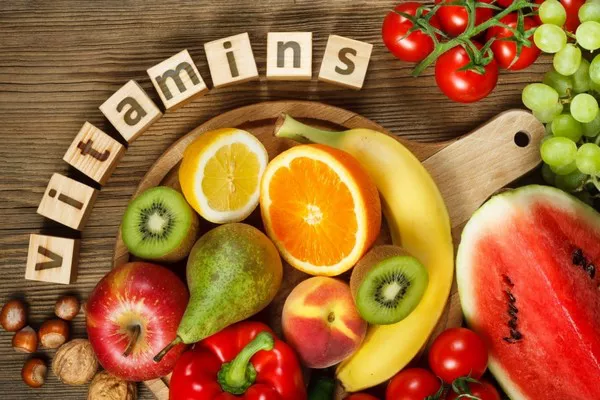The first year of a child’s life is a period of rapid growth and development. During this crucial stage, proper nutrition is essential to support the physical, cognitive, and emotional development of a one-year-old. While a well-balanced diet is crucial, certain vitamins play a particularly significant role in promoting healthy growth and ensuring optimal health. In this article, we will explore the essential vitamins that 1-year-olds need and their importance in nurturing their overall well-being.
The Importance of Proper Nutrition for 1-Year-Olds
1. Rapid Growth and Development
The first year of life is a time of remarkable growth and development. Infants triple their birth weight and experience significant brain development during this period. Providing the right nutrients through a balanced diet is vital to support these processes.
2. Building a Strong Foundation
The nutrition a child receives during the first year of life lays the groundwork for future growth and development. Adequate vitamin intake plays a crucial role in building a strong foundation for a healthy and thriving child.
Vitamin D
1. Promoting Healthy Bones
Vitamin D is essential for the absorption of calcium and phosphorus, crucial minerals for bone development. It plays a vital role in ensuring that bones grow strong and healthy during infancy and beyond.
2. Preventing Rickets
Adequate vitamin D intake is crucial to prevent rickets, a condition characterized by weak and soft bones. Rickets can lead to skeletal deformities and other health issues, making it essential to ensure 1-year-olds receive sufficient vitamin D.
3. Sun Exposure and Vitamin D
Sunlight is a natural source of vitamin D. However, because of the risk of sunburn and skin damage, it is recommended to obtain vitamin D through fortified foods and supplements, especially for infants and young children.
Vitamin A
1. Supporting Vision and Immune Function
Vitamin A is essential for maintaining healthy vision and supporting immune function. It plays a vital role in the development of the eyes and helps protect against infections.
2. Food Sources of Vitamin A
Vitamin A can be found in various foods, including orange and yellow fruits and vegetables (e.g., carrots, sweet potatoes), leafy greens (e.g., spinach, kale), and dairy products.
Vitamin C
1. Boosting Immunity
Vitamin C is a powerful antioxidant that supports the immune system, helping the body fight off infections and illnesses.
2. Enhancing Iron Absorption
Vitamin C also enhances the absorption of non-heme iron, the type of iron found in plant-based foods. This is particularly important for infants who may be transitioning to solid foods and relying more on iron from plant sources.
3. Food Sources of Vitamin C
Fruits like oranges, strawberries, kiwi, and vegetables like broccoli and bell peppers are excellent sources of vitamin C for 1-year-olds.
Vitamin B12
1. Supporting Brain Development
Vitamin B12 is essential for brain development and nerve function. It is crucial for cognitive development and overall neurological health in infants.
2. Food Sources of Vitamin B12
Vitamin B12 is primarily found in animal products such as meat, fish, eggs, and dairy. For infants following a vegetarian or vegan diet, it is essential to ensure adequate intake through fortified foods or supplements.
Iron
1. Preventing Iron Deficiency Anemia
Iron is vital for the production of hemoglobin, a protein in red blood cells that carries oxygen throughout the body. Adequate iron intake is crucial for preventing iron deficiency anemia, which can lead to fatigue and developmental delays.
2. Iron-Rich Foods
Iron can be found in both heme sources (meat, poultry, fish) and non-heme sources (beans, tofu, fortified cereals). Combining iron-rich foods with vitamin C-rich foods can enhance iron absorption.
Calcium
1. Supporting Bone Health
Calcium is essential for building strong bones and teeth. It also plays a role in nerve function and muscle development.
2. Meeting Calcium Needs
For 1-year-olds, whole cow’s milk is an excellent source of calcium. If the child is not consuming enough milk or is lactose intolerant, calcium can be obtained from other sources like fortified plant-based milks and calcium-rich foods like yogurt and cheese.
Vitamin E
1. Antioxidant Protection
Vitamin E is an antioxidant that helps protect cells from oxidative damage. It supports the immune system and contributes to healthy skin and eyes.
2. Food Sources of Vitamin E
Nuts, seeds, vegetable oils, and fortified cereals are good sources of vitamin E for 1-year-olds.
Zinc
1. Immune Support and Growth
Zinc is essential for the proper functioning of the immune system and plays a role in growth and development.
2. Zinc-Rich Foods
Zinc can be found in various foods, including meat, poultry, beans, nuts, and whole grains.
Tips for Ensuring Adequate Vitamin Intake
1. Breastfeeding or Formula Feeding
Breast milk or formula is the primary source of nutrition for infants during the first year of life, providing essential vitamins and nutrients.
2. Introducing Solid Foods
When introducing solid foods, offer a variety of nutrient-rich foods to ensure that the child receives a balanced diet. Include fruits, vegetables, whole grains, and sources of protein like meat, fish, and beans.
3. Fortified Foods and Supplements
If a child has specific dietary restrictions or is not obtaining sufficient vitamins from food sources, consult with a pediatrician about the need for fortified foods or supplements.
Conclusion
In conclusion, proper nutrition is vital for supporting the growth and development of 1-year-olds. Essential vitamins like vitamin D, vitamin A, vitamin C, vitamin B12, iron, calcium, vitamin E, and zinc play significant roles in nurturing healthy growth and overall well-being. A well-balanced diet, including a variety of nutrient-rich foods, is key to ensuring that 1-year-olds receive the necessary vitamins for optimal health. Consulting with a pediatrician or a registered dietitian can provide personalized guidance and recommendations to meet the individual needs of each child. By providing a foundation of healthy nutrition during this critical stage of life, parents and caregivers can support their children’s growth and development and set the stage for a lifetime of good health.


